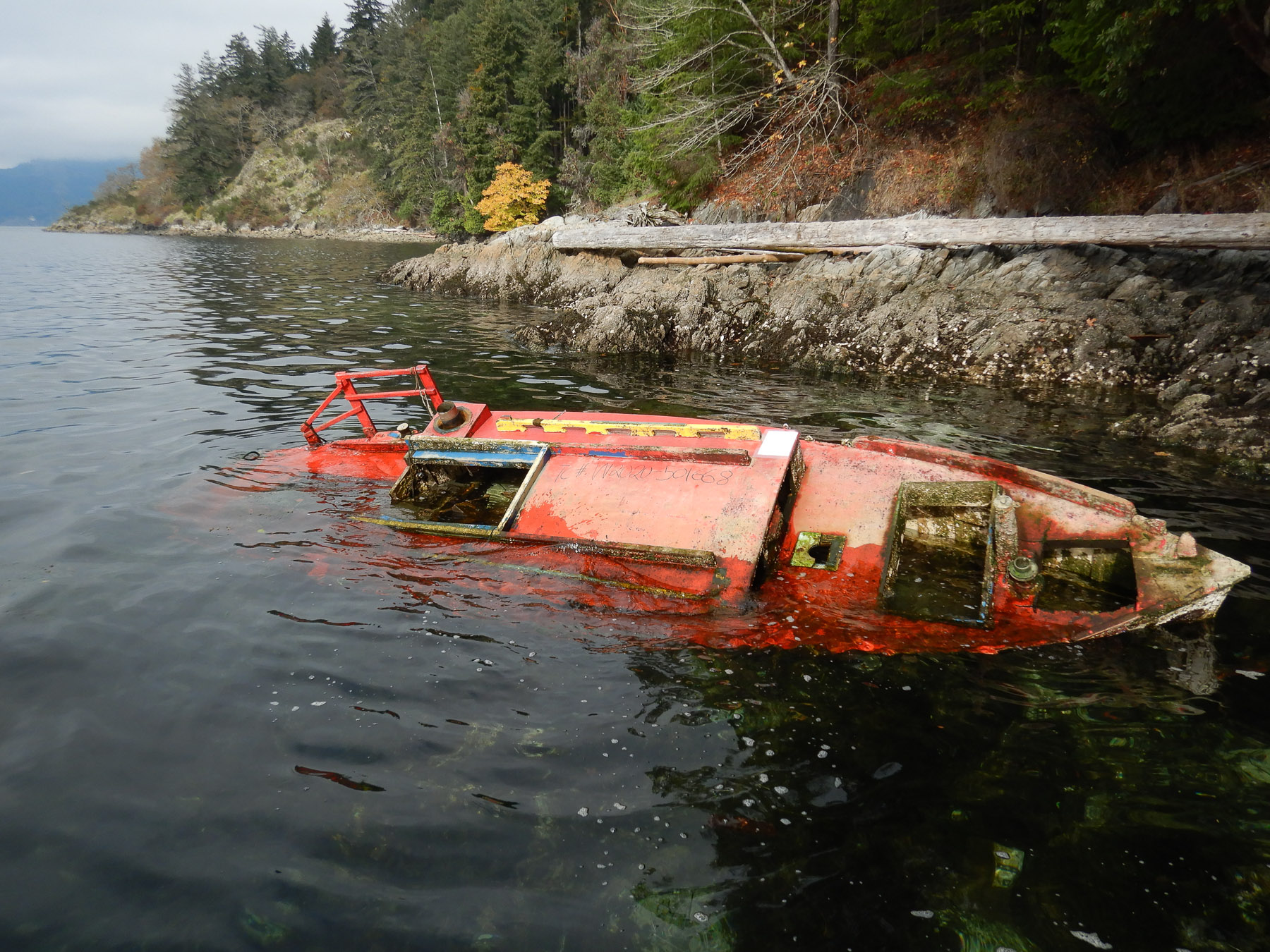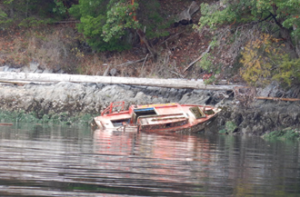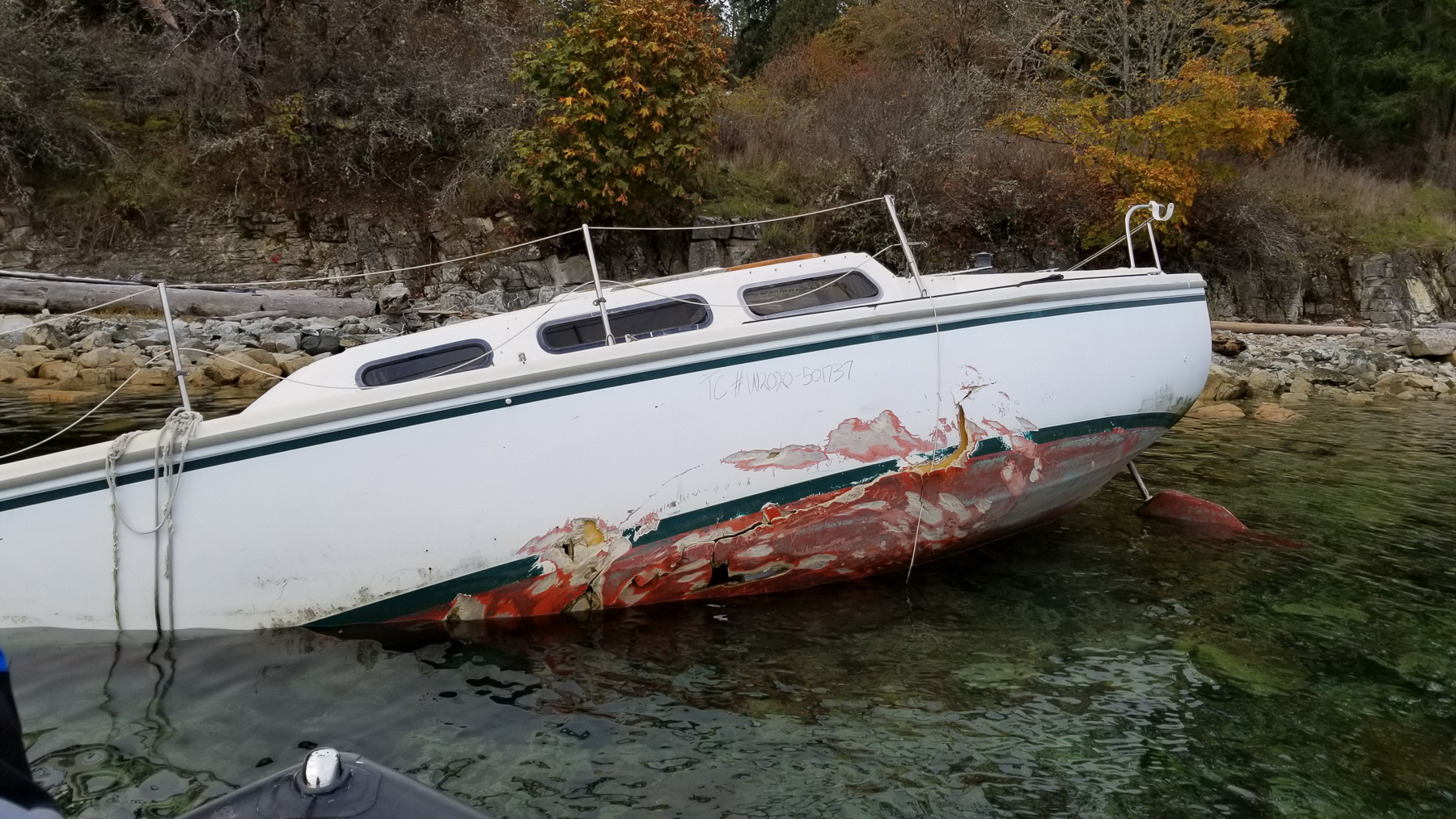Transport Canada addresses abandoned boat issue in Canada
By Eric Vienneau
Picture a rusty capsized boat resting in a lake: algae infested, the hull littered with holes and other damage, the once-vibrant paint long worn-off. A remnant of a forgotten time, like a broken toy in a backyard. It may look as if you stumbled upon a horror movie set. But the real horror isn’t in the look. According to Transport Canada, the effect these abandoned boats are having on the environment is where the real horror is. And Canada is littered with them.
Transport Canada has begun an Abandoned Boats Program. This program provides grant and contribution funding to assess and remove abandoned boats across Canada, mainly starting on the west coast. The program’s other goal is to educate boat owners on how to properly manage their boats to prevent abandonment, and to support research on boat recycling and environmentally responsible boat design.
“I’ve spent a large part of my life working in a marine environment,” said Ryan Greville, Regional Manager of the Navigation Protection Program at Transport Canada, “[The water] is an amazing place to be, and us Canadians are privileged to be able to enjoy all our lakes and oceans, and when you see someone not being a responsible boat owner, it’s disappointing. I’m really happy the Federal Government has been working hard to develop [the Abandoned Boats Program].”
Boats are filled with hazardous materials. If left to sit for a long period of time, these materials are extremely detrimental to the health and safety of people, animals, our waters, and our land. Many boats contain cleaning agents, oil, gas, battery acid, zinc, copper, and other materials. Over time, these release chemicals, creating a toxic environment. With most marine wildlife requiring a specific pH level to survive, altering that by abandoning a boat can destroy and entire region. On top of pollution, abandoned boats also just get in the way.

“-[abandoned boats] could potentially interfere with navigation, and depending on where they are, they can pose a safety risk to Canadians if people try to board these vessels,” said Greville.
But what should you do if you own a boat, but it is unsellable? Who should you contact? What are the steps?
The next step if you cannot sell your boat, is contacting a boat mover or boat recycling company.
“You shouldn’t sell your vessel to leave it as a problem for someone else,” Greville said. “A boat owner should contact their local landfill. Every province is different, and they need to find out what is acceptable to recycle and what is not and then look into actually moving the vessel.”

In Ontario, there are many boat recycling facilities. The Kawartha Marine Boat Wrecking and Recyclers say their goal is to keep as much as the boats they take in, out of landfills.
“As long as there is a motor in the boat, we will take it for free,” said Nancy Daniels, owner of the Kawartha Marine Boat Wrecking and Recyclers. “We take the boat apart and try to use anything we can.”
Ryan Greville says boat owners are responsible for taking care of their vessels even before they decide they don’t want it anymore.
“It is prohibited to abandon a vessel, but it is also prohibited to let a vessel sink, or to let a vessel become dilapidated,” Greville said. “Boat owners can face prosecution if they are not responsible.”
There are approximately 1500 known abandoned vessels in Canada, with about 1000 on the west coast of Canada. To report an abandoned boat or any irresponsible boat maintenance, contact the Transport Canada Abandoned Boats Program by email: tc.abp-pba.tc@tc.gc.ca

